European Platform for Digital Humanism
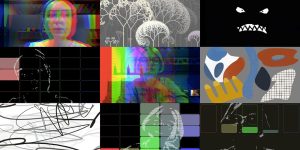
Point Nemo Garden
WRO Art Center (PL)
The event was organized at the Szczytnicki Park close to the plane tree, an example of Wrocław’s long-time signature species.
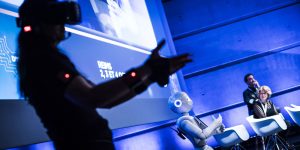
The Woman-Machine
le lieu unique (FR)
The Woman-Machine is a two-day event on the main stage of le lieu unique. In response to La Mettrie (and Kraftwerk) le lieu unique invites artists, scientists and performers to discuss the relationship between AIs and gender, robots and feminism, machine learning and the world after the pandemic.
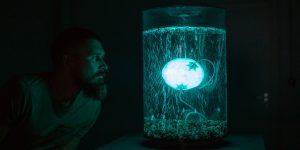
EMAP Tour
Kontejner (HR), FACT (UK), LABoral (ES)
In this tour, EMAP member organizations will give insight into their Ars Electronica Festival program and projects that address ecological issues. Many of the ecological challenges of our time will only be mastered with creative and cooperative approaches.
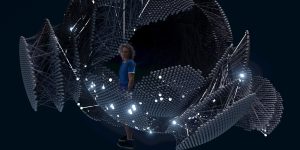
AI x Humanity - an AI LAB Tour
CPN (RS), Culture Yard (DK), Kapelica Gallery (SI)
AI x Humanity: How is AI impacting our humanity, impacted by our humanity, and what does it all mean for the future? Focusing on these aspects, the partners of the AI LAB will take you on a journey through their program.
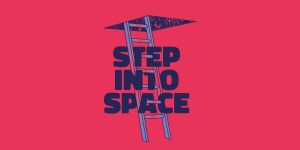
Space Art Tour – Educators Edition
Ars Electronica (AT), Ciência Viva (PT), Leiden University (NL)
Check out Space Art at the Ars Electronica Festival and get introduced to various tools for teachers and educators!

PLA(N)Tform
RIXC Center for Art and Science, Riga (LV) in collaboration with Virtual BioSensing Project Group at BioDesign Lab HfG in Karlsruhe (DE)
PLA(N)Tform is a virtual 'organism' in which digital and biological actors grow and evolve in 'ecosystemic' relations. It is a speculative experiment of 'terrestrial co-existence' transforming biological, techno-scientific and atmospheric processes into a space-time of 'planthropocene' – gardens for human-plant 'involution'. The PLA(N)Tform at Ars Electronica will evolve into a virtual garden connecting live video concert from the Forest Garden Greenhouse in Riga and Virtual BioSensing exhibition as well as ‘growing, sensing and making kin-ship’ performances in Karlsruhe.
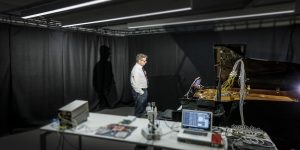
Biocomputer Rhythms
Interdisciplinary Centre for Computer Music Research (ICCMR), University of Plymouth (UK), Eduardo Reck Miranda (BR/UK)
Biocomputer Rhythms is a piece for prepared piano and percussion. It is a musical duet between a pianist and an intelligent interactive biocomputer. The biocomputer listens to the piano and produces musical responses during the performance. The responses are played on percussion instruments and on the piano by the pianist. The piano is prepared with electromagnetic actuators positioned inside the instrument to vibrate its strings. Electromagnetic actuators are also used to vibrate percussion instruments.
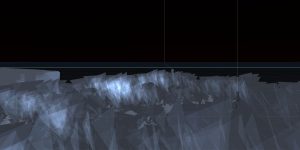
Random Rhetoric
MADE Group (GR)
“Random Rhetoric“ refers to computerized practices in politics, which are carried out through computers under the norm that political ideas operate as an outcome of mechanized processes and statistics, aiming at the absolute persuasion, the seduction of the audience, allured from the representation of a machine mimicking a human being.

Pavilion of Knowledge Garden
Pavilhão do Conhecimento - Ciência Viva (PT)
Ars Electronica Lisbon Garden will take us on a virtual tour of the Pavilion of Knowledge exhibits. Rui Agostinho, together with Ana Noronha, will co-host a live virtual presentation, answering questions and explaining how we can know the chemical composition of stars from their light. Ars Electronica Garden Lisbon will link to Ars Electronica spaceEU for the launch of spaceEU Toolkit, a ready-to-use digital collection of space-centered activities. Both gardens will host the world-famous Sarah Petkus’s Noodle.
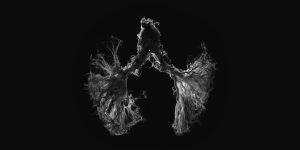
The Tides within Us
Barnaby Steel, Marshmallow Laser Feast (MLF) (UK), Matthias Günther, Fraunhofer Institute for Digital Medicine MEVIS (Fraunhofer MEVIS) (DE)
A behind-the-scenes look into The Tides Within Us, a collaboration between Marshmallow Laser Feast and Fraunhofer MEVIS. The project investigates the flow of oxygen through the cardiovascular system, painting a picture of a human body as a fluid event, more like a whirlpool than a static object. This flow questions the boundary of where this living body begins and where it ends. When our skin becomes transparent, deeper connections become apparent.
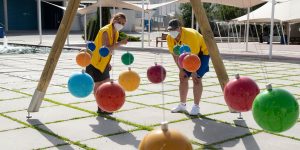
Pendulum Garden
Parque de las Ciencias (ES)
The Pendulum consists of 17 pendulums of different lengths and colors which represents the 17 Sustainable Development Goals. It aims to make society aware of the importance of achieving them by 2030. In this way, science and art come together to spread the importance of acting globally to achieve equality among people, protect the planet and ensure prosperity as part of the new sustainable development agenda.
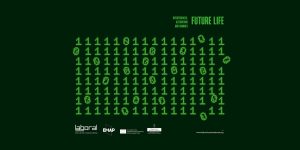
Future Life. Interferences, Alterations, Changes.
Laboral Centro de Arte y Creación Industrial (ES)
The artists in this exhibition work with blood and chlorophyll to investigate the connections between human and plant life. They use microbial cultures, robotic clams and sensors to demonstrate the contamination of the oceans; or apply AI algorithms so that something as innocent as a flower can visualize financial speculation. They also engage with the new icons, practices and virtual devices that define the increasingly polarized and radicalized scenarios of online social and cultural ecosystems.
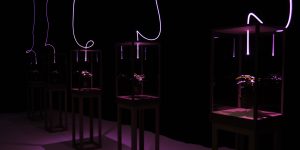
Quarantine
KONTEJNER ǀ bureau of contemporary art praxis (HR)
Through topics like pollution, interspecies communication, climate change, the "post-human" body and the Anthropocene, the KONTEJNER Garden project underlines the need for new values and morals. The project artists are not complacent or ignoring life, they are creating their own visionary narratives building on discourses of unity rather than division and embracing concepts like "human” and “nature".
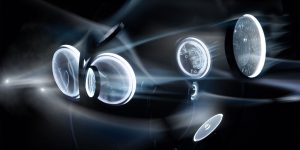
Igniting Creativity and Discovery where Science and Art Collide - Dublin
Science Gallery Network (Int. - Atlanta/Dublin/Venice/Melbourne/London/Bengaluru/Detroit)
The Science Gallery Garden at the Ars Electronica Festival will explore trust, technology, global challenges, arts innovation and new forms of digital storytelling. A showcase from the world’s only university network dedicated to public engagement with science and art, it will feature interactive workshops, experimental audio and visual experiences, livestreamed events and a specially-curated digital archive.
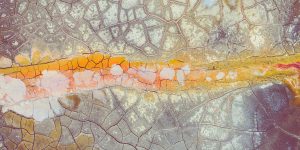
Speculating on the Future
Centre for Fine Arts (BOZAR) (BE)
BOZAR explores the role of scientific and technological research as an engine for creativity. The meeting of science, technology and the arts is the favoured basis for finding innovative responses to the social, ecological, and economic challenges that Europe will be facing in the near future. BOZAR joins the Ars Electronica Festival with its own interpretation of the Kepler’s garden, through the curation of 3 online events under umbrella name "Speculating on the future".
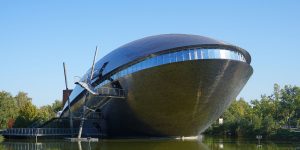
Space Garden
Universum® Bremen (DE)
Space research is fascinating and important, but it is hardly addressed in schools. As an institution for scientific communication and a member of the project SpaceEU Universum® Bremen will provide courses for students and teachers, and also exhibit examples of student projects about space.
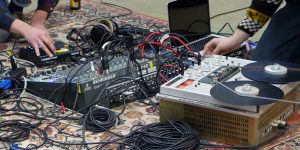
DRUMS RADIO
Ecole nationale supérieure d’art (ENSA) (FR), Antre-Peaux (FR)
The collective DRUMS, made up of 9 emerging artists researching and working within the field of sound and beyond, offer two hours of streaming over five days (September 9-13). Each daily session will be based on a specific pattern, responding to the pattern of the day before. "A throw of the dice never will abolish chance." – Mallarmé

art+science lab
Center for the Promotion of Science – CPN (RS)
The central segment of the Belgrade Garden is the premiere of the winning artwork from the national art+science selection for 2020. Digital Prayer by Kristina Tica uses ML techniques for establishing a connection between the canonical structure of an Orthodox icon and the image artificially generated by a computer program. The Garden will also host a musical performance I Sit and Worry About Her by Jasna Jovicevic (winner of the national selection in 2019), based on sonification of brain waves. Both works came out as results of interdisciplinary dialogues and an intensive scientific mentorship/residency program facilitated by CPN at principal national research centers.
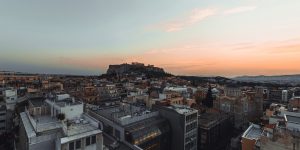
Stories of Athens
Onassis Stegi (GR)
The works presented in the context of Ars Electronica Garden Athens explore the post-human condition, the changing boundaries of city and the body, the need for environmental justice and the emergence of new subjectivities, as well as new forms of regulation, resistance, dissent and expression. The program includes Data Garden, a multimedia installation, and HackAthens 2020, a series of five works in the form of film, digital games, sound drama and mobile apps.
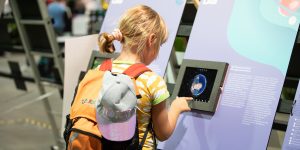
Welcome to spaceEU Linz
Ars Electronica (AT)
Ars Electronica has a long history of working with space related content and narratives. The EU project spaceEU allowed them to open new collaborations on a European level. Together with eleven organizations, Ars Electronica developed and produced a wide range of space engagement activities addressing youth, families and teachers.


